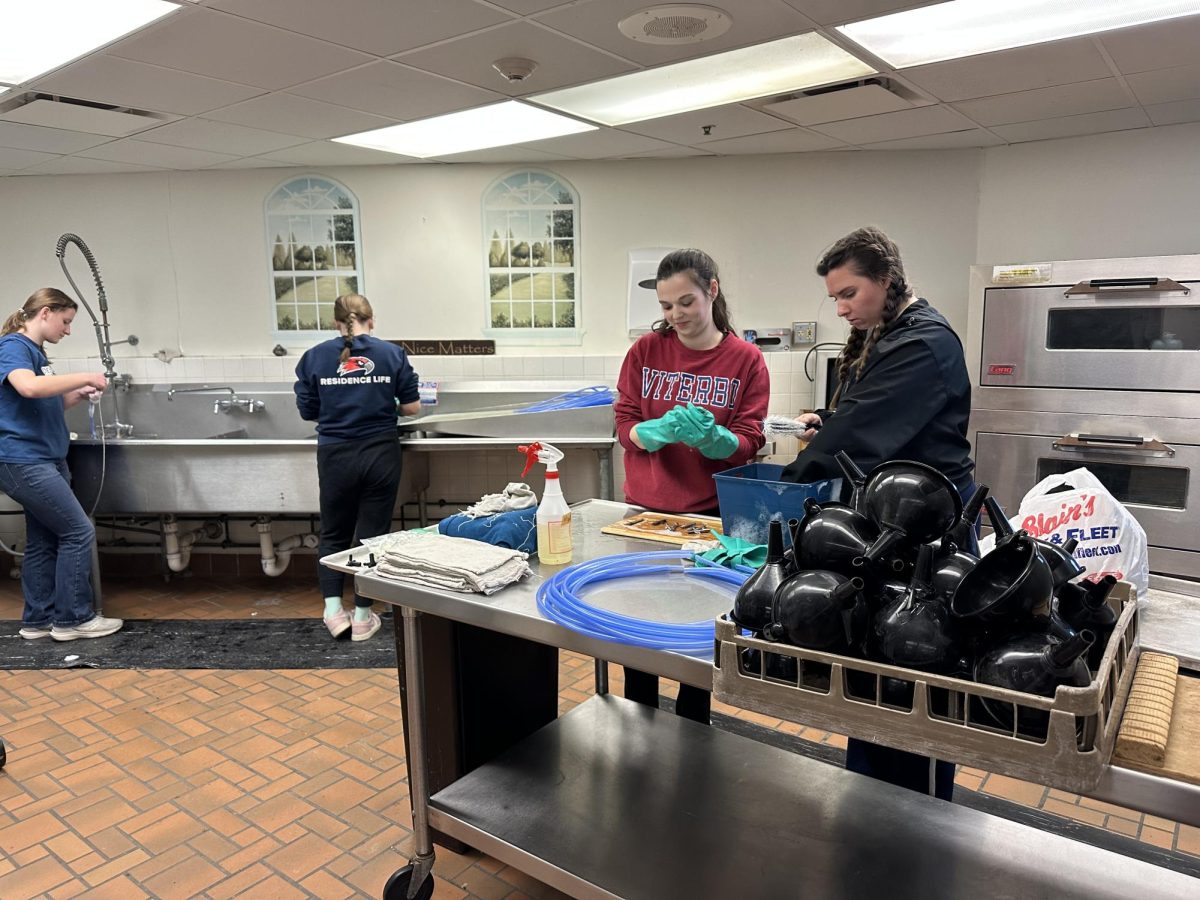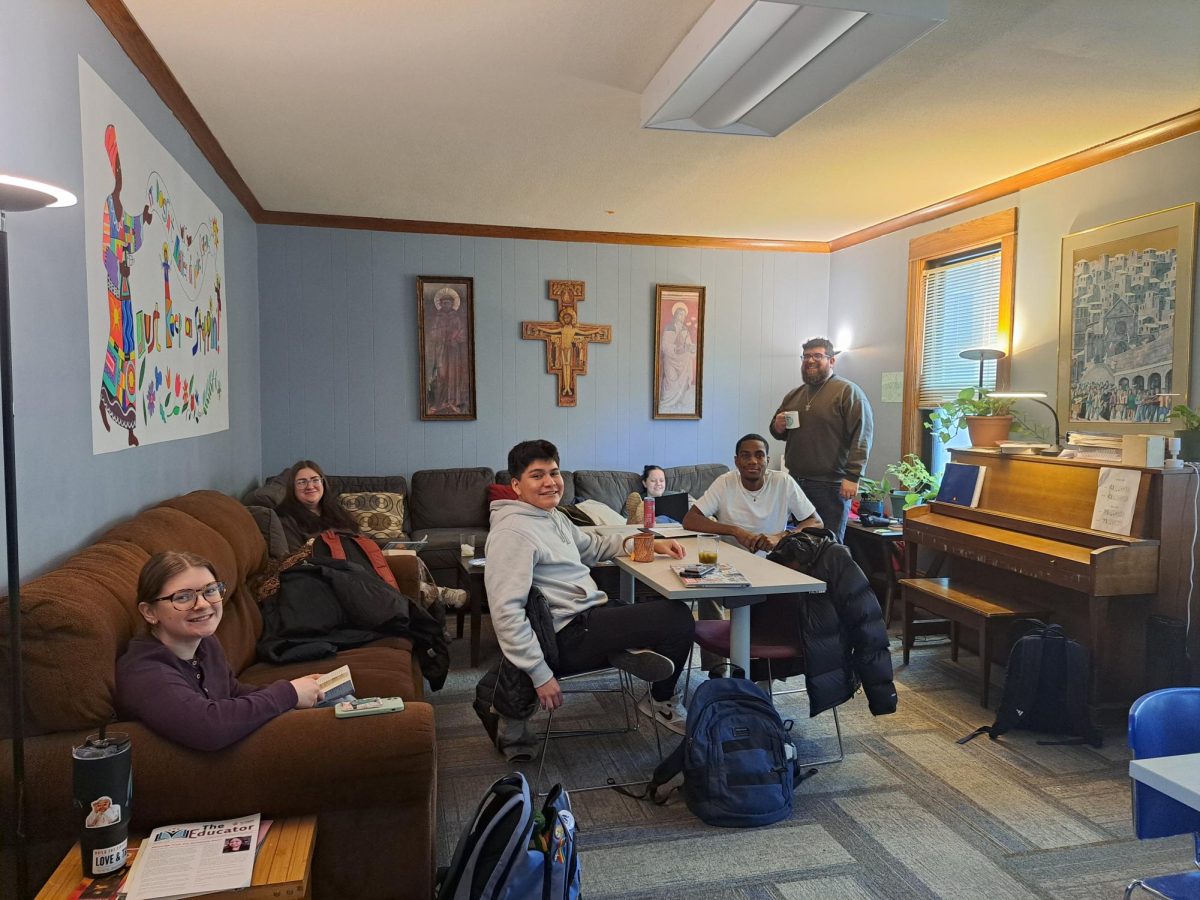On-campus wages may be on the rise, Viterbo leadership says
October 4, 2022
Many Viterbo students are employed on campus, being paid the standard $8.25 an hour. But, with inflation continuing to ravage America’s economy, students worry that simply paying one dollar above the Wisconsin minimum wage isn’t enough to support their lives and academic expenses. President Rick Tritely, the deans, and the cabinet have suggested that a raise in the Viterbo working wage may be on the horizon. Initial changes may be implemented as early as the spring semester, President Trietley explained, with more of a “permanent move” coming next fall, depending on the budget process.
The most popular plan is to reduce the number of workable hours across campus, which employers have been struggling to fill for years. If the number of hours is reduced, then the university would have the capability to pay more per hour. This allows work-study students to receive their full, government-granted awards in less time, subsequently freeing up more time for academics and extracurriculars.
The money for these wages comes from both the federal government and Viterbo’s own funding, drawing primarily from the operating budget. The operating budget generally consists of revenue drawn from tuition and room and board fees, but that doesn’t mean the proposed change would increase these expenses for students. The idea is that the same amount of money is flowing out to working students, it’s just condensed and more easily accessible for those with busier schedules. President Trietley insisted that he’s against raising the price of tuition.
He also hopes that the raising of campus wages will attract more non-work-study students to find on-campus jobs. After all, he explains, working on campus is a “great opportunity.” It’s close to home and employers take class schedules into account when organizing shifts.
However, working for only a dollar above the national minimum wage as prices soar for things like eggs—not to mention the looming threat of student loans—can be discouraging for some students. One such student, sophomore CJ Zimmer, explains that he’s too busy to commute off campus for a job, while the hours he works here aren’t substantial enough to make any kind of impact on his tuition expenses. He feels “stuck,” as do many other Viterbo students.
Alyssa Gostonczik, Director of Advising and Career Development, has been a part of this conversation since 2018. She assures students that “this is not an issue that is flying under the radar.” She explains that the topic of student wages on campus is “something that the administration, cabinet, and deans are very aware of,” and on which they are “really trying to make meaningful progress.”
President Trietley explained that the administration has been working on these plans for almost a year now and hoped to include it when they planned the 2022-23 budget last year. However, due to dropping enrollment, the plans had to be put on hold. There’s also the issue of finding the “magic number”—the wage that keeps students happy and supported without bankrupting the university. Conversations with the Student Government Administration concluded that wages should raise to the double digits. However, President Trietley admits, the University’s budget likely couldn’t handle much more than that.
So, it seems, the ‘magic number’ may be 10 dollars, and the administration seems committed to raising the wages. But is that all it takes to quell students’ skepticism? Maybe not. “I’m not going to see 10 dollars before I graduate,” Zimmer insists. In truth, only time will tell if the administration can follow through on their promises and move to raise wages across campus. For now, Gostonczik promises, “We see you. We hear you. We are working.”


